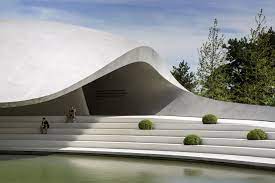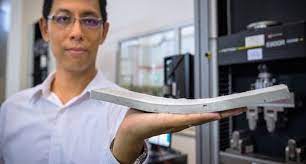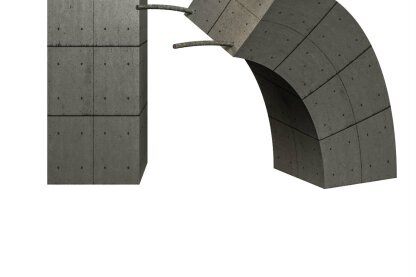Contents
Introduction:
In the realm of construction, innovation has always been a driving force, pushing the boundaries of what’s possible and redefining traditional practices. One such innovation that’s been gaining traction in recent years is flexible concrete. Unlike conventional concrete, which is rigid and prone to cracking under stress, flexible concrete offers a myriad of advantages that are revolutionizing the way we build. In this blog post, we’ll delve into the unique properties of flexible concrete and explore how it’s reshaping the construction industry.
What is Flexible Concrete?
Flexible concrete, also known as bendable or ductile concrete, is a type of concrete that exhibits enhanced flexibility and durability compared to conventional concrete. It is achieved through the incorporation of special additives and fibers, such as polymer fibers or carbon fibers, which impart flexibility while maintaining structural integrity. This innovative material retains the strength of traditional concrete while offering increased ductility and crack resistance. For custom shed construction, flexible concrete offers unparalleled durability and design flexibility, ensuring a long-lasting and visually striking outdoor storage solution.

Advantages of Flexible Concrete:
Crack Resistance:
One of the primary advantages of flexible concrete is its exceptional crack resistance. Traditional concrete is prone to cracking due to factors such as shrinkage, temperature fluctuations, and structural loads. However, flexible concrete’s ability to deform and absorb energy helps mitigate the formation of cracks, thereby enhancing the longevity of structures. This feature is particularly beneficial in earthquake-prone regions where the ability to withstand seismic activity is crucial.
Enhanced Durability:
Flexible concrete boasts superior durability compared to conventional concrete. Its ability to flex under stress reduces the likelihood of structural failure, making it ideal for applications where resilience is paramount. Whether it’s bridges, pavements, or high-rise buildings, flexible concrete offers a longer service life and requires less frequent maintenance, resulting in cost savings over the lifespan of a structure.
Design Flexibility:
The flexibility of flexible concrete opens up a world of design possibilities for architects and engineers. Unlike rigid concrete, which limits design options, flexible concrete can be molded into various shapes and forms, allowing for innovative and visually striking structures. This versatility enables designers to create curved elements, intricate patterns, and unconventional geometries that were previously challenging to achieve with traditional materials.
Sustainable Solution:
In an era increasingly focused on sustainability, flexible concrete emerges as a viable eco-friendly solution for construction projects. Its enhanced durability reduces the need for frequent repairs and replacements, thereby minimizing material consumption and waste generation. Additionally, the incorporation of recycled materials into flexible concrete further enhances its environmental credentials, making it a sustainable choice for sustainable building practices.
Cost-Effectiveness:
While the initial cost of flexible concrete may be slightly higher than conventional concrete, its long-term benefits far outweigh the upfront investment. The reduced maintenance requirements, extended service life, and decreased likelihood of structural failures translate to significant cost savings over time. Moreover, the versatility of flexible concrete can streamline construction processes, leading to shorter project timelines and lower labor costs.

Applications of Flexible Concrete:
The versatility and superior performance of flexible concrete make it suitable for a wide range of applications in the construction industry. Some notable examples include:
- Bridge decks and infrastructure
- Pavements and sidewalksconstruction
- High-rise buildings and skyscrapers
- Retaining walls and sound barriers
- Tunnels and underground structures
Conclusion:
Flexible concrete represents a paradigm shift in the construction industry, offering a host of advantages that are reshaping the way we build. From enhanced durability and crack resistance to design flexibility and sustainability, the benefits of flexible concrete are undeniable. As technology continues to evolve, and environmental concerns grow, the adoption of innovative materials like flexible concrete will play a crucial role in creating resilient, efficient, and sustainable infrastructure for the future. Embracing this revolution in construction will pave the way for safer, more durable, and visually captivating structures that stand the test of time.



